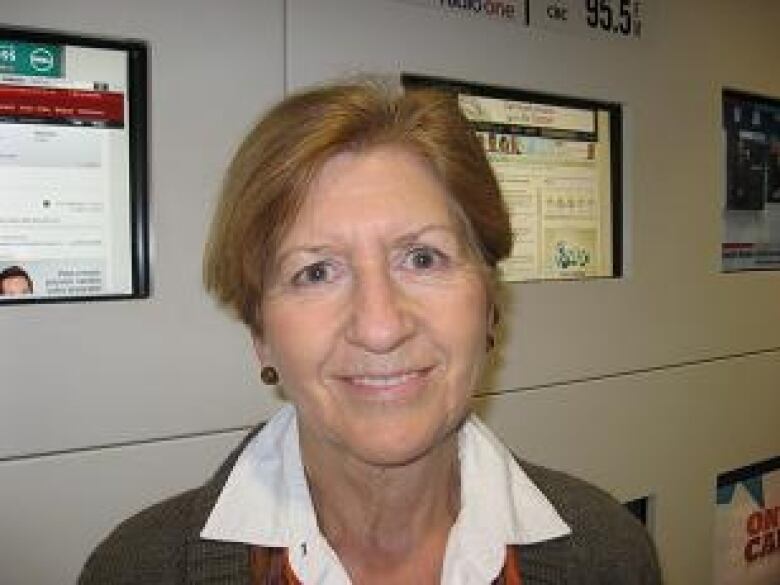Acadian Society says bilingual buses promote assimilation
Jeanne d'Arc Gaudet suggests French immersion classes be moved to francophone schools

The president of the New Brunswick Acadian Society, Jeanned'Arc Gaudet, says it's time to end the debate over bilingual school buses.
She argues separate buses arenot a waste of moneyand not a form of segregation but rather a small part in the bigger effort topreserveAcadian culture.
"The issue of separate buses isone factor among many things we are trying to do to build or to rebuild the identity and the culture of some of our students who have lost their culture over the years,especially children living in or around urban areas," Gaudet said.
She is calling for more understanding among anglophonesin the province and says the reality is the dominant language in New Brunswickis English.

"When we're in a group and there's one anglophone that doesn't speak French and we have 25 francophones,the language of communication is going to be English," Gaudet said.
She says assimilation is still very much a threat to Acadian culture, andtheschool bus is one of many experiences within the school system.
"The minute they come out of the school, what do they do? They're in the community playing with the neighbour and what do they speak?"
Move immersion classes toFrench schools
Gaudet says in New Brunswick more than 80 per cent of francophones speak English, while lessthan 20 per cent of anglophones are fluent in French.
She says rather than argue about separatebuses in the school system, the province should turn its attention to increasing the number of anglophones who can speak French.
"We all know that bilingual is anglophone, sorry, but that's the way it is."
Gaudet would like to see anglophonesgiven the opportunity to be immersed in French which would include immersion before thecurrent Grade 3 entry point.
"I think the way to do it, why not put the immersion classes in the French schools so they can be surrounded with experiences of learning a language."












_(720p).jpg)


 OFFICIAL HD MUSIC VIDEO.jpg)
.jpg)



























































































